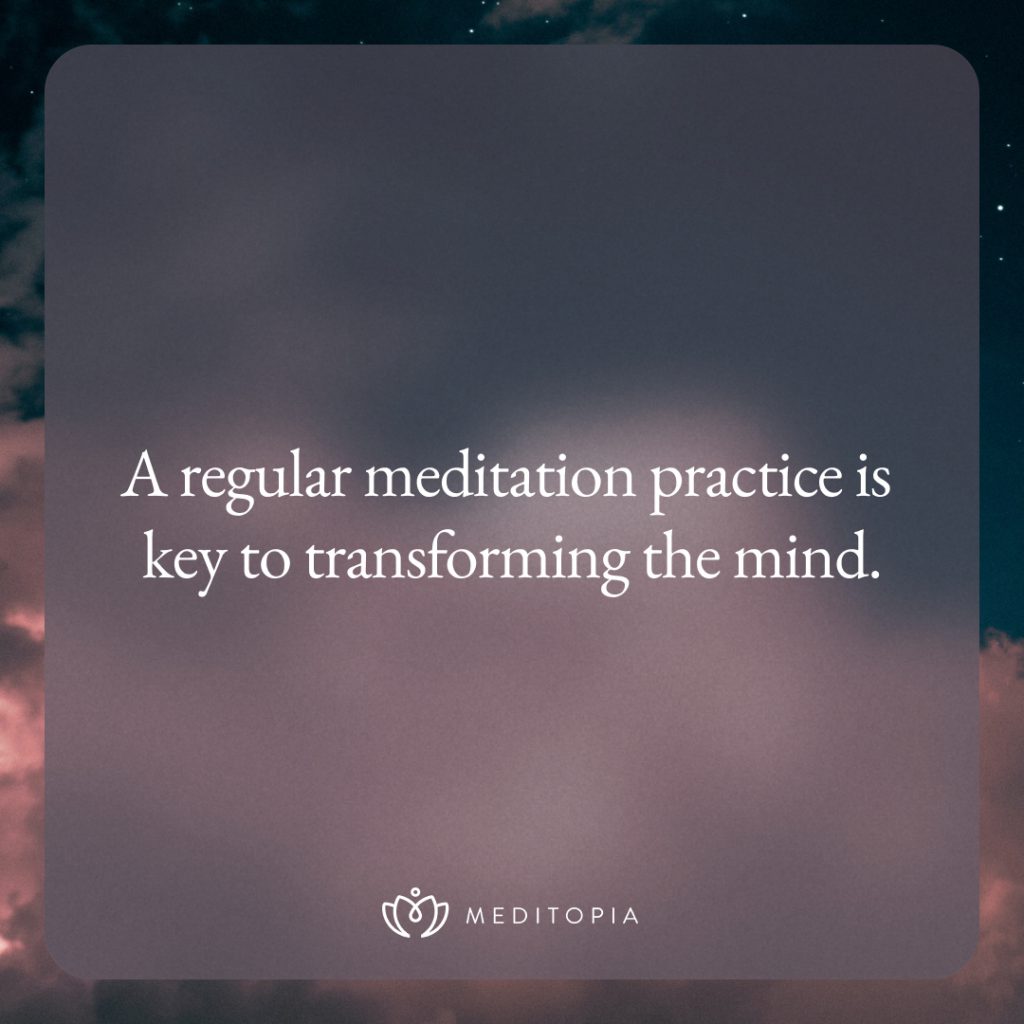Can You Be Addicted to Meditation?

Content
As meditation and mindfulness become even more popular these days, it’s been suggested as a way to enhance almost anything from performance, to attention, stress management, and sleep. There’s a significant amount of scientific evidence that shows the benefit of meditation, but is it possible that meditation could be harmful or addictive?
Let’s explore what we mean by addiction before we discuss further.

What is addiction?
The American Psychiatric Association defines addiction, often used interchangeably with “substance dependence” or, in more severe cases, called “substance use disorders” (SUDs) as “complex condition[s] in which there is uncontrolled use of a substance despite harmful consequences”. It’s possible to develop addiction to substances such as alcohol, drugs, and tobacco as well as behaviors such as gambling, shopping, or internet use.
Addictions don’t appear out of nowhere and often manifest as a coping mechanism, or a way to feel better, numbing pain or relieving stress. Peer pressure or feelings of euphoria may also contribute to the development of addictions. Understanding the nature and reasons behind addiction is important in order to both identify and treat them.
Living with addiction is complex and each person experiences it differently. Addiction is serious and requires community support and professional help. If you or someone you know is experiencing addiction, please reach out and seek the advice of an expert.
Meditation and Addiction

Now that we’ve covered a brief overview of addiction, let’s talk a little bit about its relation to meditation. Mindfulness-based interventions such as meditation are often used when treating addiction as they can help to increase self-control and reduce stress.
Research shows that meditation can have a positive impact when it comes to addiction recovery, helping people develop healthier coping skills and bringing awareness to repetitive, destructive behaviors such as alcohol or drug dependence in moments of stress. It’s also been found that meditation can be effective in reducing stress within addiction intervention programs such as Alcoholics and Narcotics Anonymous.
Beyond the positive effects of meditation when it comes to addiction, the main question this article is contending with is whether or not we can be addicted to meditation. Maybe you meditate for long periods of time, feeling bad when you don’t meditate, you might be wondering if you’re addicted to it.
Or, perhaps you’re so comfortable during meditation that you don’t want to stop. There might be more to your wanting to observe and listen to within if you want to keep going in that way. If you’ve been meditating for a while and you feel uncomfortable when you skip your practice, we might say that meditation has become a part of your life, or a habit. Our minds often prefer familiar activities and as we repeat them, they become habits. Your mind might simply want you to return to your habit of meditating regularly because it’s a comfortable, known, and safe space.
There’s an important distinction between an addiction and a habit. The former is something that’s harmful for you, that you don’t feel you can stop despite any adverse effects. The latter is a “settled tendency or usual manner of behavior” and doesn’t necessarily negatively impact your life. Which one better describes your relationship with meditation?
How much should you meditate?

How much you need to meditate depends on the individual and is different for everyone. There’s no specific rule or prescription. Meditation is a highly personal practice and can vary from person to person when it comes to duration of time and quality of experience. Five minutes each day may be more than enough for some, while others may meditate almost an hour every day. Even one person can change up their practice depending on their own needs.
The ideal length and frequency of your practice will take shape as you get deeper into meditation. The best meditation routine is one that’s sustainable for you. There are no universal rights and wrongs of meditating.
Can you meditate too much?
We often prefer specific guidelines in our daily lives because they’re easier to follow and keep track. For example, popular opinion says to take at least 8,000 steps and drink around three liters of water per day. However, there’s no specific, recommended duration or frequency when it comes to meditation. The best way to determine how much and how often you want to meditate is by checking in with yourself. Your needs may change from time to time. Sometimes it’s harder to sit still and let our minds run freely. In those cases, you might keep your practice short and gradually increase the time and frequency as you get used to it.
In fact, meditation is a great way to see how something resonates for you, including the practice of meditation itself. It encourages you to observe yourself without judgment and you can use the practice in order to explore whether or not it works for you. You can stop or continue your practice while you are checking in with yourself now and then.
Mindfulness meditation allows us to observe our thoughts without judging, editing, or censoring. The more we do so, the more the thoughts that we deny or avoid become more visible. Eventually, the effects of these uncomfortable thoughts will lessen, but at first it might not be easy. Sitting in discomfort with challenging emotions and thoughts can be difficult even for longtime practitioners. Meditation may not feel good for you because you don’t feel relaxed or at peace when you practice. You may even feel worse when you delve into those more challenging spaces in your heart and mind. That’s all part of the process. Give yourself time to try and sit with and confront those difficult emotions to see if you don’t feel relaxed eventually. Be patient with yourself. It’s a marathon, not a sprint.
Unfortunately, there will always be adversities in life. Meditating, in that sense, allows us to be comfortable with discomfort and gives us strength to overcome those hardships.
Meditation Can Deepen Your Understanding of Self
Does your relationship with meditation remind you of something else in your life? Several personality studies arrived at a consensus that patterns of behaviors show up in different areas of our lives. We try to make sense of a new situation based on our past knowledge and experience, behaving in a particular and often consistent way depending on the situation. Meditation can be a powerful, reflective tool for noticing our own behavior patterns. This kind of self-observation eventually allows us to name these behaviors and potentially free ourselves from them if they’re not good for us, expanding our ability to make choices that better serve us.

To Meditate Or Not To Meditate
It’s possible to fall into unhealthy habits when we’re tired, stressed, or anxious. We can sometimes turn toward substances like alcohol or drugs to escape our problems because it’s hard to confront and experience them. Choosing meditation as a coping mechanism isn’t always easy, particularly if you’re deep in the throes of a challenging time. Meditating can help you breathe and self-soothe while also gently reminding you of your strength to both face and survive those difficulties.
On the other hand, meditating as much as you can might not be the solution for you. Some situations are just tough no matter what we do. Meditate as much as it helps you or don’t. What matters most is that you’re taking steps to care for yourself and reaching out for help when you need it.
Be mindful about your motivations to meditate and not to meditate. Are you doing it to soothe? To avoid a problem? To deepen your self-awareness? There are countless reasons to take up the practice, but make sure you’re customizing it to your own needs. If a part of your meditation practice doesn’t feel good to you, you can always change it or stop. You, above everyone else, have the answers as to whether or not meditation is good for you.



Great article! Resonated a lot with my thoughts.